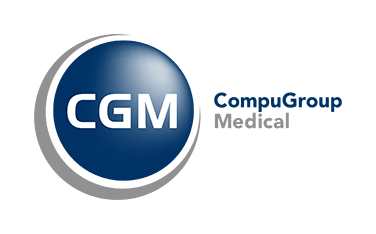Revenue Cycle Management is a significant aspect of every provider’s business model as you work to collect co-pays, verifying insurance data, collecting post visit balances, and much more. According to a HIMSS Analytics survey, 76% of healthcare providers found denials to be their biggest billing challenge. Other obstacles included revenue integrity and patient payment.
While there is no perfect system for Revenue Cycle Management or billing in general, we can work towards making the process efficient and effectively great with a few solid tips.
1. Improving RCM starts at registration
By working to ensure that all important information is accurately collected in advance of the visit (via a patient portal or given enough time before the patient sees the doctor in your office), there is naturally less error proneness. Insurance information is an especially important source of errors because of the confusion patients face with the various numbers and letters on their insurance materials. A strong revenue cycle process starts by ensuring that this information is accurate.
2. RCM is simpler when copays are collected
Sure, patients can be reluctant to provide copay payment before or on the day of their visit. With insurance verification and other tasks getting in the way, often times medical offices simply forget to collect the copay from the patient. According to Becker’s Hospital Review, the national standard for copay collection is 98%. You should strive for this target and by doing so will see that improving RCM comes all the easier.
3. Improve your RCM with better claims and denials processes
As mentioned earlier, patients often have a difficult time understanding their insurance cards. Much more vital to that are the policy terms. As time progresses, insurance policies become more and more difficult for patients to understand. Beyond this, properly processing claims has become more difficult for the provider. By working to analyze the data on denials, issues can be found that will be improved during the process of improving RCM.
A strong team of revenue cycle management experts is often called upon to assist with these tasks in particular. The results are shown with a 100% overall satisfaction rating with account executives with the Aria RCM group.
4. Listening to your patients preferences is an essential way to improve RCM
Some patients love to do everything electronically. Others appreciate receiving a paper statement in the mail. Some patients want you to send them appointment and bill reminders via text message. Others want to know about their appointments and bills via telephone call. It is important to understand your patients’ preferences as catering to their comfort level will turn into higher satisfaction ratings. Not only does this help with improving RCM, but it assists along the way with overall patient satisfaction.
There are excellent partners offering the ability to set your patients up online to quickly and easily pay their balances. By coordinating your technology stack with compatible payment solutions, you provide even more patient satisfaction.
It is important that communication is efficient and effective. There are a number of great organizations that assist with appointment reminders that will help with patient satisfaction and therefore assist with ensuring that they are paying on time and in full.
5. Keeping informed of regulatory shifts helps improve RCM process
Regulations change on a constant basis. Understanding what those changes are and knowing about new regulations in advance of their implementation, is an essential component of improving RCM. Knowing what's happening in the legislative and rulemaking bodies will provide ample time for staff training. This further allows for strong pivots to new protocols.
Compliance and regulatory shifts can come from the federal, state, and local governments. Additional movement in compliance comes from payers, so beware not only of government impacts but those from the private sector as well.
6. Giving up on 90+ Collections does NOT help to improve RCM
Collection accounts can get out of hand quickly. The older your accounts receivables become, the more difficult it is to collect. Even at over 90 days, collection rates can drop as low as 15% if not managed properly. Imagine where this number goes when it gets to 120 or more days. The utilization of best practices by industry experts can help lead your practice to maximize revenue collection.
Taking these six tips together will almost certainly assist with your attempts at improving RCM. Take one at a time or if you work with a team of experts you’ll more likely be able to commit to multiple tips together. Either way, your success is important to your staff and to your patients.

